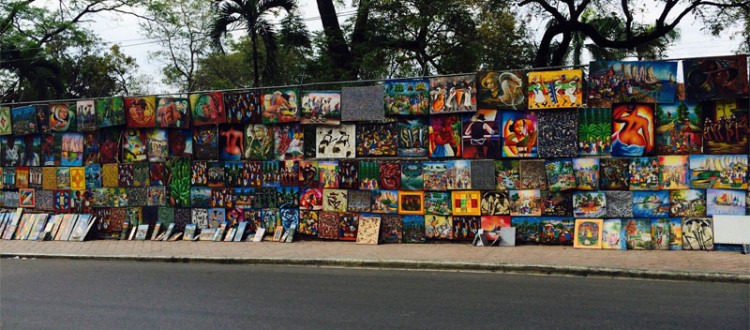Why Haiti Needs New Narratives: Panel Round Up from the 41st Caribbean Studies Association Meeting, Port-au-Prince, Haiti
By: Nathan Dize
Source: HNET Humanities and Social Sciences Online
On June 5th, 2016 about 800 researchers, professors, librarians and graduate students arrived at the Marriott Hotel in Port-au-Prince, Haiti for the 41stinstallment of the Caribbean Studies Association meeting. Being my first CSA meeting as well as my first trip to Haiti, I was very excited to participate in the conference as well as take in the sounds and sights of the Haitian capital. However, I’ll save my thoughts on my visit to the Champs-de-Mars, theMUPANAH, and the Place Boyer for another time. In this post, I will give a detailed report of one of the more recent – and influential – movements featured at the CSA: New Narratives of Haiti. Before recapping the panel, I provide a brief summary of the movement below.
In 2013, the 25th annual Haitian Studies Association meeting held at the Hotel Karibe in Pétionville took on the theme of “Representations, Revisions, Responsibilities: Towards New Narratives for Haiti in 2013 and Beyond.” The goal of the conference was to shift negative perceptions of Haiti by re-visiting the past and looking deeper for more nuanced narratives and representations of the Caribbean nation. Later in 2013, an issue of Transition appeared with the same focus on narratives of Haiti, embracing the provocative call-to-arms best articulated by anthropologist, poet, and performance artist Gina Athena Ulysse. In her 2015 trilingual tour-de-force Why Haiti Needs New Narratives: A Post-Quake Chronicle, Ulysse argues that, in the public domain, Haiti has been “rhetorically and symbolically incarcerated” and is rarely characterized by more than clichés or stereotypes.[1] As such, New Narratives of Haiti aims to reframe depictions of Haiti by focusing on the ways in which Haitians have historically fought against colonial and neocolonial representations of their history, culture, religion, and society.
» CLICK HERE to read the full article

